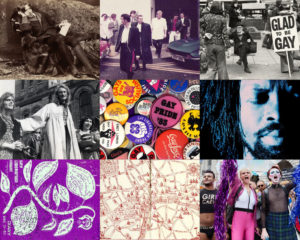LGBTQ people have influenced every aspect of culture and history with their incredible stories and contributions, but they have consistently been air-brushed from the history books. A new museum, Queer Britain, is seeking to put this right with the first dedicated site specifically designed to preserve, explore and celebrate our culture, and is due to open in central London in 2021.
The concept was launched by co-founder Joseph Galliano in 2018 at the Café Royal, where Oscar Wilde first met and fell in love with Lord Alfred Douglas. Many museums, archives and personal collections already have items in their catalogues synonymous with the LGBTQ story. Now, a mammoth task is underway to understand and ultimately pull together artefacts and records to create a new focal point. The aim is for the museum not only to be a bricks and mortar building but that it should also utilise cutting edge digital technology and have a strong educational responsibility and ethos. It will be a place used by everyone, regardless of their sexuality or gender identification, to explore the culture they have been born into or wish to understand.
But why is a museum like Queer Britain important when young people today have so much freedom and understanding about their gender identity and sexuality? It is true, that in the past twenty years great improvements have been made in our society and through anti-discrimination laws, but in our rightful seeking of equality we are also in danger of losing sight of why those battles were fought in the first place. Who were the men and women who came before us and lived through times when homosexuality was illegal? Their stories, and those of the generations before them, must be preserved and told. Ignoring history or simply allowing it to fade into the shadows, risks letting those same prejudices and intolerances rear their ugly heads again and again.
‘When you’ve been told you don’t exist, you go looking for clues,’ says Galliano, ‘The problem is that our histories have been so often written in the margins.’ The museum will, he says ‘validate and show people of their own existence.’ He intends the museum to be a catalytic space, a hub within the mainstream where LGBTQ stories can be seen and heard in permanent displays and through different exhibitions that cannot be adequately told in other museums.
The highly successful LGBTQ tours at the V&A, and soon to be modelled at the British Museum, are testament to the thirst there is for such knowledge. Museums have a unique place in our society, they show us who we were, give us the opportunity to explore who we are and empower us to decide our future. Queer Britain promises to serve as that place.

